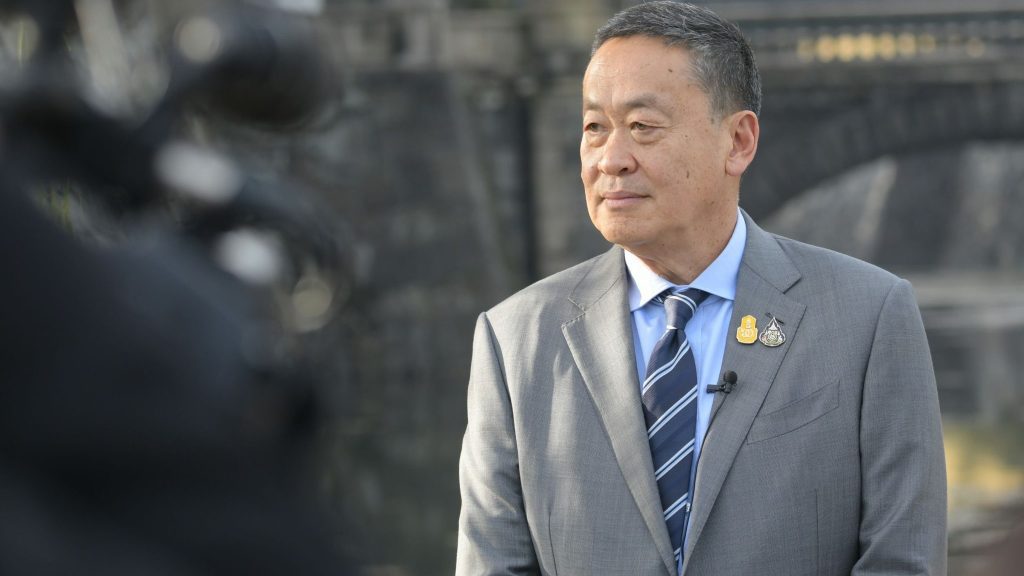In more than six months in power, Prime Minister Srettha Thavisin has received praise for his attempts to regain the trust of international investors, but there is little to show for all the travelling and meetings.
The country's reputation was certainly harmed by the 2014 military takeover and a military-supported government, and the PM has been working diligently to restore trust and reliability.
Srettha has been actively reaching out to numerous world leaders – politicians and investors – to attract investments in Thailand.
With extensive experience in running a successful business, and proficiency in English, he has confidently engaged the global community, a trait lacking in his predecessor, General Prayut Chan-o-cha.
Following his visit to Australia, Srettha travelled to Germany and France – important members of the European Union and significant markets for Thailand's exports and sources of foreign direct investment.
It is still uncertain to what extent Srettha's visits could stimulate a free trade agreement. The EU has progressed faster than Thailand in developing its low carbon economy, which could negatively impact Thai exports. Stringent environmental measures implemented by the EU could hinder Thai products' access to that large market.
Srettha is also in discussions with the EU to eliminate tourist visa requirements for Thai passport holders.
Attracting foreign investors
The Srettha government has sought flagship projects that could generate momentum for Thailand's slow economic growth. The PM remains passionate about convincing international investors to invest in his proposed land bridge project connecting the Gulf of Thailand and the Andaman Sea on Thailand's west. This ambitious 1-trillion-baht plan has not garnered solid commitments from foreign investors.
Last month, Srettha met with Cambodia's Prime Minister Hun Manet in Bangkok. They discussed potential joint oil and gas exploration – an overdue joint venture – in an area of the Gulf of Thailand where both have overlapping territorial claims.
The areas have large reserves of natural gas that could offer vital energy supplies to both countries, which are net energy importers. There is currently no clear timeline for when they will sign agreements for joint energy exploration.
Efforts to reopen tourism access to the Preah Vihear temple from Thailand have also been promoted to help boost tourism in both countries.
Visa progress with China
Srettha has achieved a significant success by signing a permanent free-visa agreement with China, which became effective from March 1. Thailand seems to have regained the confidence of Chinese tourists, as reflected in the growing number of arrivals in the first two months of 2024.
During his visit to the United States in November to attend the APEC Summit, Srettha met with numerous world leaders and US businesspeople, including executives from Amazon Web Service, Google and Microsoft who have committed to investing in data centers. These US corporate giants have made commitments to invest since the time of the Prayut government.
There hasn't been any progress in attracting investments in the high-tech industry, which Srettha has been promoting. Major chip-making companies like Intel, Nvidia, Samsung and Taiwan Semiconductor Manufacturing Company have not expressed any interest in building plants in Thailand, keeping the country stuck in the declining electronics sector.
Limited expectations
Aat Pisanwanich, an economics analyst and senior consultant at Intelligence Research Consultant Co, stated that he would give Srettha a score of six out of 10 for the road shows on several occasions, although they may not have resulted in significant progress.
He mentioned that Srettha is just performing routine tasks as a part of the government, and spending time on unsound plans, such as the 500-billion-baht cash handout and land bridge project.
Aat expressed doubt about Srettha's ability to make Thailand a regional hub in various areas, including aviation. This skepticism came after a recent Srettha speech outlining his government’s ambition to make Thailand the hub of the region in eight fields – agriculture and food, aviation, tourism, logistics, future mobility, digital economy, wellness and medical, and finance.
The Thai economy is weighed down by structural issues, such as an aging population, significant inequality, lack of highly skilled labor, decreasing competitiveness of the private sector and weak institutions. Additionally, Srettha has to confront the constraints of a coalition government.
Srettha has not prioritized comprehensive reforms. The Pheu Thai Party campaigned on populist policies during the 2023 election. In contrast, the opposition Move Forward Party has suggested reforms to the tax system, the military, education and social welfare.
Many critics are concerned that Srettha might have limited political influence due to the sway of former prime minister Thaksin Shinawatra, who is seen as the de facto leader of the ruling Pheu Thai. Thaksin is perceived by some as a political puppet of the military-backed elite who supposedly still control the elected government.
“This government is not better than the previous bad one,” said Sulak Sivaraksa, a veteran social activist in a recent interview to Today news.
By Thai PBS World’s Business Desk









